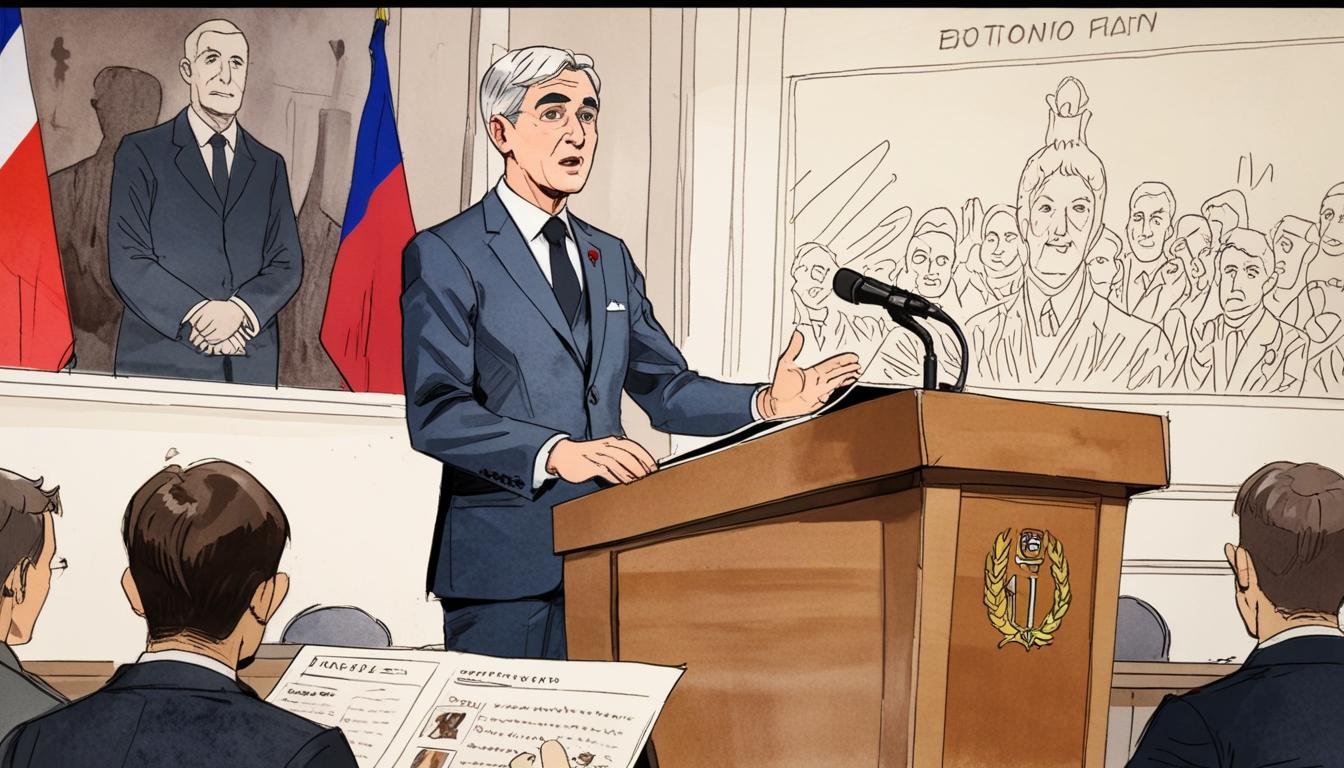The French government has announced plans to ban several activist groups considered to be on the political extremes, a move it portrays as part of its efforts to defend democracy against extremism. This development is occurring against the backdrop of a volatile political climate ahead of the 2027 presidential elections, with various contenders attempting to position themselves strategically.
Interior Minister Bruno Retailleau, a senior government figure and prospective presidential hopeful, confirmed the intention to dissolve Urgence Palestine, a collective advocating for an immediate ceasefire in Gaza and accusing Israel of genocide. Speaking during an interview with Europe 1-CNews, Retailleau described the group as promoting "Islamism," which he characterised as an ideology using religion as a tool. He said, “We need to hit Islamism so that we can protect our Muslim compatriots.” The call to ban this group is part of a broader government campaign targeting organisations deemed extremist.
Retailleau also revealed his plans to initiate similar dissolution procedures against other groups. One such group is the antifascist Young Guard, established in Lyon to counteract rising far-right activism and supported by left-wing political figures. Another target is Lyon Populaire, associated with an "ultra-right" movement. These measures are an integral part of Retailleau's political strategy as he positions himself for leadership within Les Républicains and aims for a 2027 presidential candidacy.
The interior minister’s announcements came ahead of the May Day celebrations on 1 May, which often experience outbreaks of violence during the annual International Workers’ Day events. Moreover, France is witnessing an alarming increase in hate crimes. According to the National Consultative Commission on Human Rights, racist incidents surged by 32% in 2023, with antisemitic acts rising by a staggering 284% compared to 2022. The commission noted that these figures likely underestimate the reality, as many victims do not report these incidents. The rise in hate crimes is partly linked to the ongoing Israel-Hamas conflict, intensifying tensions within France's communities.
The political environment has become highly polarised, with figures across the spectrum responding to the government’s tough stance. Jean-Luc Mélenchon, a prominent leftist leader, attended a rally following an attack on a mosque that was described by Prime Minister François Bayrou as Islamophobic. Mélenchon was visibly moved when a woman shared her concerns about Muslims' safety in France. He told the gathering, "That's for sure," in response to her remarks and accused Retailleau of fostering “a climate of Islamophobia.” Mélenchon has positioned himself as a defender of Muslims in France, despite accusations from some opponents that his party, France Unbowed, harbours antisemitic sentiments, which he strongly denies.
On the opposite end, far-right leaders have criticised the government’s approach as insufficient and hypocritical. Jordan Bardella of the National Rally questioned Retailleau’s commitment after a knife attack in Mulhouse resulted in one death and injuries to police officers. The attacker, an undocumented Algerian man previously convicted of glorifying terrorism linked to the Hamas offensive on Israel, had been under house arrest awaiting deportation. In Bardella's view, Retailleau’s repeated statements fail to translate into effective action. He said, “Perhaps in order to please the National Rally electorate and right-wing voters, (Retailleau) is making more and more statements, except that the same things are happening over and over again.”
Retailleau’s approach reflects a broader political strategy resembling that of former President Nicolas Sarkozy’s successful 2007 campaign, where overtaking the far-right on security and immigration issues helped secure victory. With Emmanuel Macron barred from seeking a third term, the 2027 presidential race is shaping up to be fiercely contested, with figures such as former Prime Minister Edouard Philippe and Justice Minister Gerald Darmanin also expected to contend.
The Independent is reporting that this recent government push to dissolve activist groups represents both an attempt to respond to rising extremist threats and a calculated move within a highly fragmented and competitive political landscape in France.
Source: Noah Wire Services
